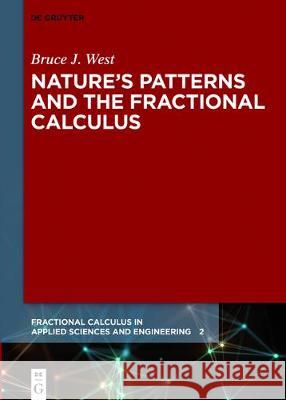Nature’s Patterns and the Fractional Calculus » książka
Nature’s Patterns and the Fractional Calculus
ISBN-13: 9783110534115 / Angielski / Twarda / 2017 / 213 str.
The series is devoted to the publication of high-level monographs which cover progresses in fractional calculus research in mathematics and applications in physics, mechanics, engineering and biology etc. Methodological aspects e.g., theory, modeling and computational methods are presented from mathematical point of view, and emphases are placed in computer simulation, analysis, design and control of application-oriented issues in various scientific disciplines. It is designed for mathematicians, and researchers using fractional calculus as a tool in the field of physics, mechanics, engineering and biology. Contributions which are interdisciplinary and which stimulate further research at the crossroads of sciences and engineering are particularly welcomed. Editor-in-chief: Changpin Li, Shanghai University, China Editorial Board:
Virginia Kiryakova, Bulgarian Academy of Sciences, Bulgaria
Francesco Mainardi, University of Bologna, Italy
Dragan Spasic, University of Novi Sad, Serbia
Bruce Ian Henry, University of New South Wales, Australia
YangQuan Chen, University of California, Merced, USA Please submit book proposals to Professor Changpin Li: lcp@shu.edu.cn
Complexity increases with increasing system size in everything from organisms to organizations. The nonlinear dependence of a system's functionality on its size, by means of an allometry relation, is argued to be a consequence of their joint dependency on complexity (information). In turn, complexity is proven to be the source of allometry and to provide a new kind of force entailed by a system's information gradient. Based on first principles, the scaling behavior of the probability density function is determined by the exact solution to a set of fractional differential equations. The resulting lowest order moments in system size and functionality gives rise to the empirical allometry relations. Taking examples from various topics in nature, the book is of interest to researchers in applied mathematics, as well as, investigators in the natural, social, physical and life sciences.ContentsComplexityEmpirical allometryStatistics, scaling and simulationAllometry theoriesStrange kineticsFractional probability calculus











